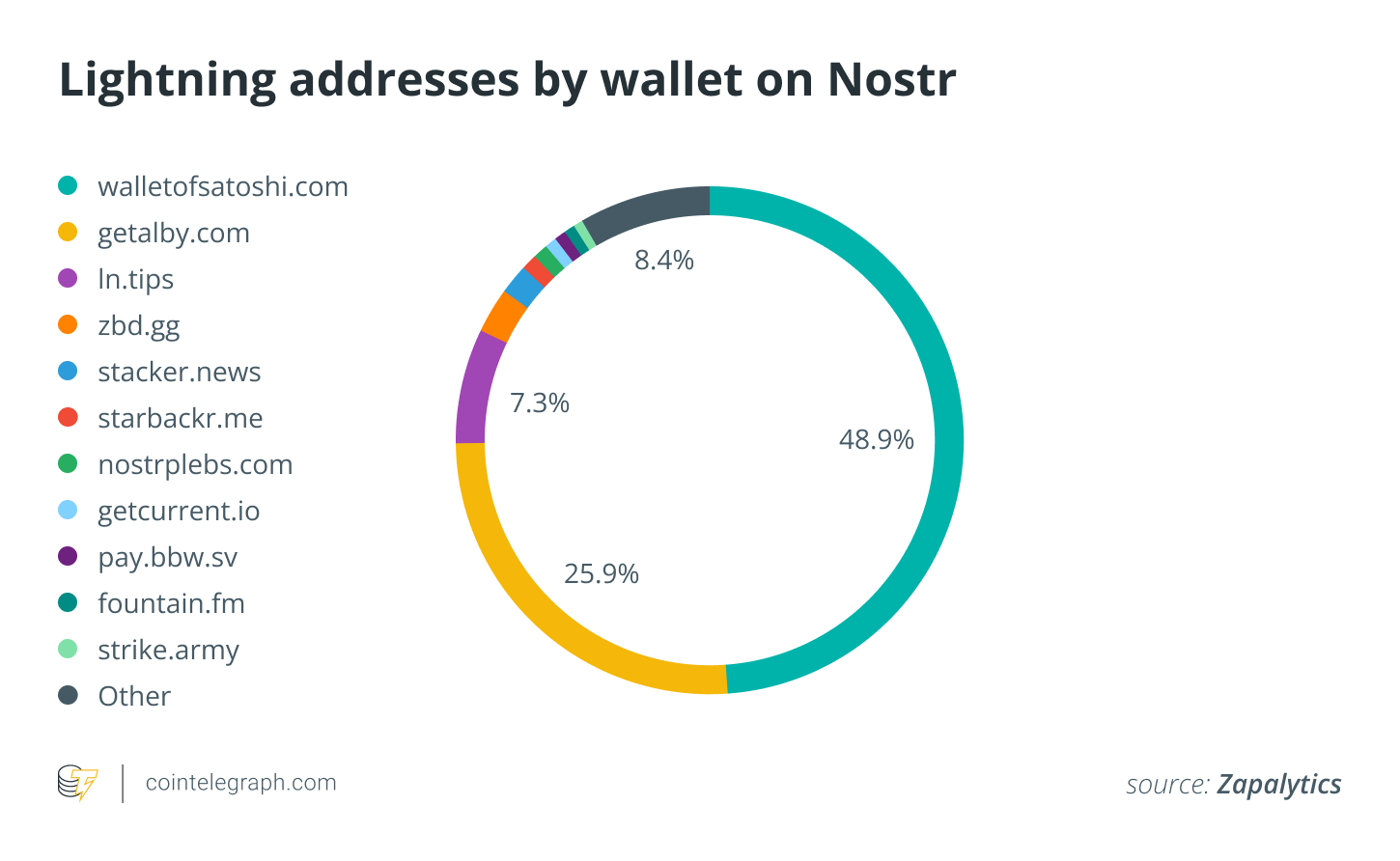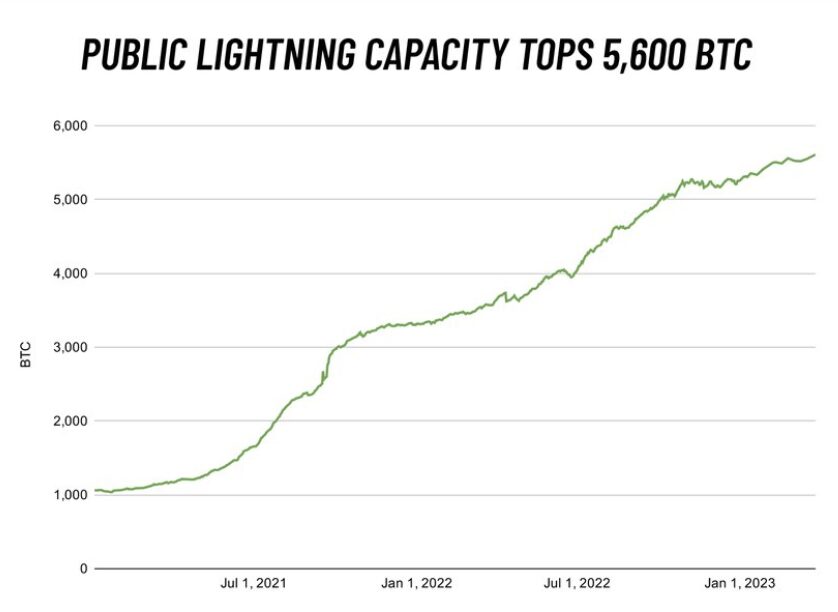[the_ad id="1637"]
[ad_1]
The Lightning Network, a layer-2 payment solution built on top of the Bitcoin blockchain, is six years old.
Products, users and the amount of Bitcoin (BTC) sent on the Lightning Network (LN) has sky-rocketed in 2023, despite the price per Bitcoin slipping under $20,000.
The LN has benefited from the integration into the Nostr protocol — in which users can send one another satoshis (small amounts of Bitcoin) — and the proliferation of custodial and noncustodial LN wallets, and its formal integration in territories such as El Salvador and Lugano.
From Mediterranean cities to Senegal, the LN is also growing as a peer-to-peer means of payment. Nonetheless, despite its growth, concerns still stymie the network, according to key opinion leaders interviewed during Advancing Bitcoin Developer Conference in London.
Eric Sirion, co-founder of Bitcoin mobile app Fedi and maintainer of the Fedimint protocol, explained that running a Lightning node in 2023 is still difficult and that some people don’t bother when faced with the complexity:
“To keep your own Lightning node running, to keep well connected, like keep your connections up to date with the nodes that are relevant — it’s a part-time job essentially.”
Matthias Koller, co-founder of Swiss company Pocket Bitcoin, said, “It has become substantially easier compared to early 2018. However, it is still not ‘easy’ for the masses.”
“But it’s exciting to see the development around full node implementations and the progress that’s been made.”
Sirion, who wrote the open-source code Fedimint and now works on the Fedi team, explained that custodial Lightning wallets, such as Wallet of Satoshi, are popular among Bitcoin advocates. He’s right: It is the wallet of choice for Nostr, a space dominated by Bitcoiners.

However, the reliance on custodial wallets could be a problem for the LN. Trusting a third party with funds, such as Wallet of Satoshi, is contrary to the Bitcoiner mantra, “not your keys, not your coins,” Sirion said.
Furthermore, Koller explained that the reason many Bitcoiners end up sidestepping the “not your keys, not your coins” mantra is that some of the custodial solutions are just so easy. “It’s set up in seconds, ready to transact,” he said, noting:
“But in fact, it’s no different from keeping Bitcoin on an exchange — it’s not your Bitcoin. It’s risky if people aren’t aware of the risks involved and the amounts kept in…
Click Here to Read the Full Original Article at Cointelegraph.com News…
[ad_2]
[the_ad id="1638"]
